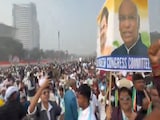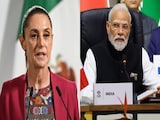Coronavirus: India is preparing for a possible COVID-19 third wave, as states start unlocking
A commentary on the website of the medical journal The Lancet authored by 21 people including Biocon's Kiran Mazumdar Shaw and top surgeon Dr Devi Shetty has recommended eight actions to prepare for a possible resurgence of COVID-19 cases in India.
Here are the 8 points recommended by the experts:
- The organisation of essential health services must be decentralised. A one-size-fits-all approach is untenable since the number of COVID-19 cases and health services differ substantially from district to district.
- There must be a transparent national pricing policy and caps on the prices of all essential health services - ambulances, oxygen, essential medicines and hospital care. Hospital care should not require any out-of-pocket expenditure and costs should be covered by existing health insurance schemes for all people, as has been done in some states.
- Clear, evidence-based information on management of COVID-19 must be more widely disseminated and implemented. This information should include suitably adapted international guidelines for home care and treatment, primary care, and district hospital care in local languages that incorporate local circumstances and clinical practice.
- All available human resources across all sectors of the health system, including the private sector, must be marshalled for COVID-19 response and adequately resourced, particularly with sufficient personal protective equipment, guidance on the use of clinical interventions, insurance, and mental health support.
- State governments must decide on the priority groups for vaccination on the basis of evidence to optimise the use of available vaccine doses, which can be incrementally expanded as supplies improve. Vaccination is a public good and should not be left to market mechanisms.
- Community engagement and public participation must lie at the heart of India's COVID-19 response. Grassroots civil society has historically had a crucial role in people's participation in health care and other development activities, such as in strengthening the COVID-19 response in Mumbai.
- There must be transparency in government data collection and modelling to enable districts to proactively prepare for the likely caseloads in the coming weeks. Health system personnel require data on age and sex disaggregated COVID-19 cases, hospitalisations and mortality rates, community-level coverage of vaccination, community-based tracking of the effectiveness of treatment protocols and long-term outcomes.
- The profound suffering and risk to health caused by loss of livelihoods should be minimised by making provisions for cash transfers by the state to workers in India's vast informal economy who have lost their jobs, as is being done by some state governments. Formal sector employers must be required to retain all workers, irrespective of the status of contracts, through a government commitment to offer compensation to these companies when the economy revives.
Advertisement
Advertisement















